Have you ever received educational materials that didn't quite meet your expectations? It can be frustrating when what you anticipated falls short, affecting both learning and teaching experiences. Whether it's errors in content, poor quality, or a mismatch with your curriculum, it's important to voice your concerns. Join me as we explore how to effectively express your feedback and ensure that educational resources meet the needs of all learners.
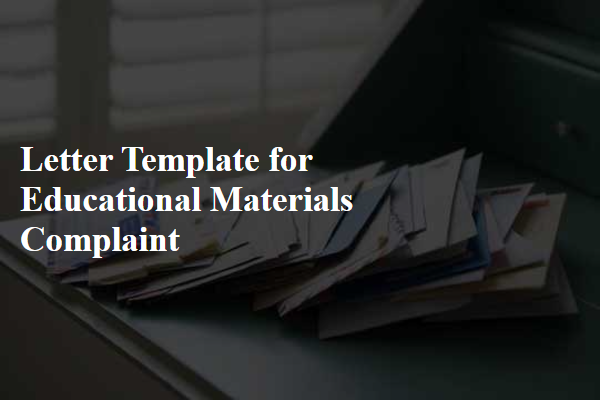
Recipient's Details
Recipient's details should include the full name of the educational institution (such as Springdale High School), the relevant department (like the Curriculum Development Office), the physical address (including street number and postal code), and a contact number (such as a dedicated complaints line). Including the recipient's email address (for swift digital communication) is also beneficial. Accurate details ensure effective communication and prompt resolution of the issue related to the educational materials.
Clear Subject Line
A clear subject line is crucial for ensuring that educational materials complaints are directed to the right department for prompt resolution. An effective subject line should be concise yet descriptive, capturing the essence of the complaint. For instance, "Complaint Regarding Inaccurate Information in History Textbook" immediately informs the recipient about the specific issue, allowing for efficient categorization and prioritization. Including key details such as the specific title of the material, publication date (if applicable), and a brief mention of the nature of the complaint substantially aids in the response process. This clarity simplifies communication and enhances the likelihood of a timely and appropriate response from educational authorities.
Specific Issue Description
Inadequate educational materials can significantly hinder the learning experience for students, particularly in subjects like Mathematics and Science. For instance, outdated textbooks published before 2018 often exclude recent advancements in concepts such as Artificial Intelligence and Quantum Physics, leaving students ill-prepared for current academic standards. Additionally, digital resources, including online platforms like Khan Academy or Coursera, may lack alignment with state curricula, resulting in gaps in essential knowledge. Furthermore, inadequate visual aids, such as diagrams and charts, in these materials can impair comprehension, especially among visual learners. These issues can lead to decreased student engagement and achievement, ultimately affecting overall educational outcomes.
Supporting Evidence
Numerous incidents have arisen regarding the quality of educational materials utilized in various institutions, such as textbooks and online resources. Reports indicate that these materials often lack alignment with current educational standards outlined by organizations like the National Education Association (NEA). For example, statistics reveal that around 30% of high school textbooks used in subjects like Mathematics and Science contain outdated information, leading to confusion among students. An analysis of online resources used in classrooms has shown that 25% do not incorporate inclusive language or diverse perspectives, failing to meet the needs of a multicultural student body. Furthermore, teacher feedback from surveys conducted in 2023 highlights a significant dissatisfaction rate of approximately 40% regarding the relevance and engagement level of these materials. These concerns necessitate immediate attention and action to ensure that educational resources reflect accurate and contemporary knowledge, promoting effective learning environments.
Desired Resolution
Submitting a complaint about educational materials can highlight issues affecting learning experiences. Throughout the academic year, various resources, such as textbooks from Pearson Education or digital platforms like Khan Academy, may contain inaccuracies or outdated information (notably in STEM subjects). Complaints may focus on specific deficiencies, like missing chapters or formatting errors, impacting students' comprehension and engagement. Desired resolutions could include the issuance of revised editions, access to supplementary online resources, or clarity on grading policies. Prompt responses from educational institutions, such as Boston University or the University of California system, are essential for restoring trust in the learning process.
Letter Template For Educational Materials Complaint Samples
Letter template of feedback on the quality of educational resources received.
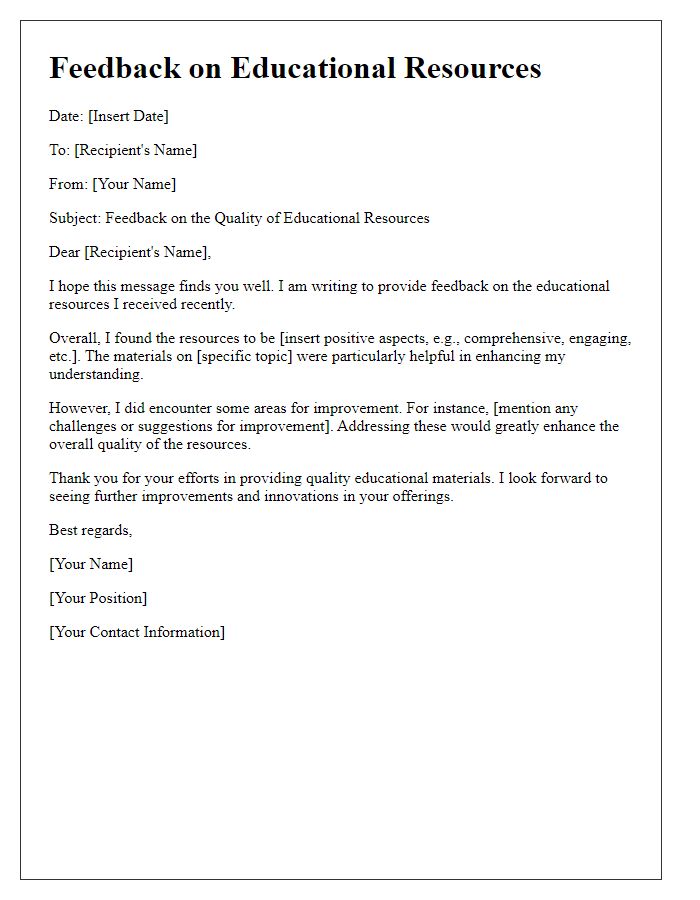
Letter template of request for replacement of damaged educational materials.
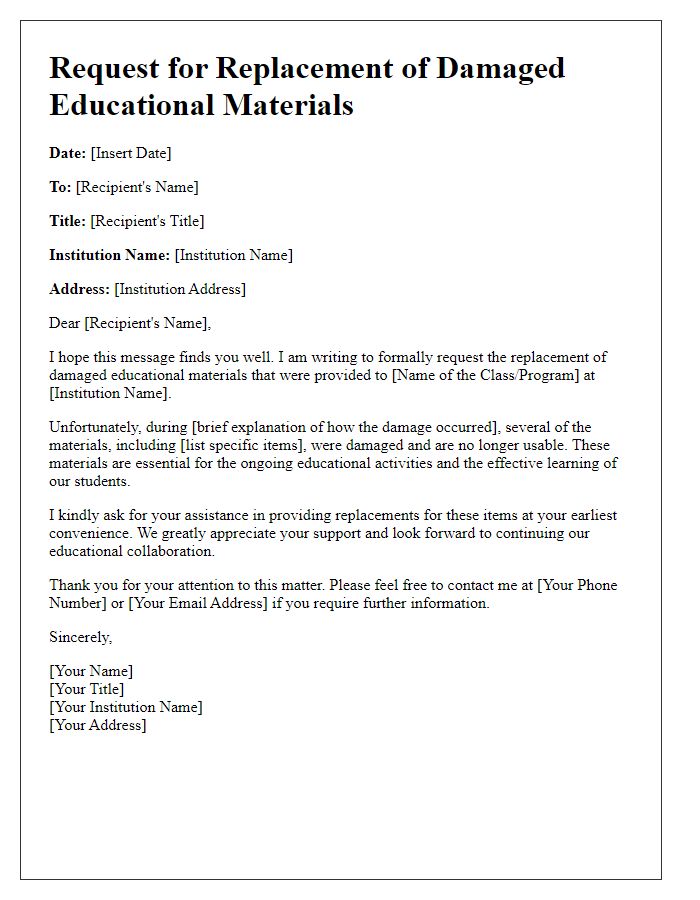
Letter template of appeal for additional resources for educational purposes.
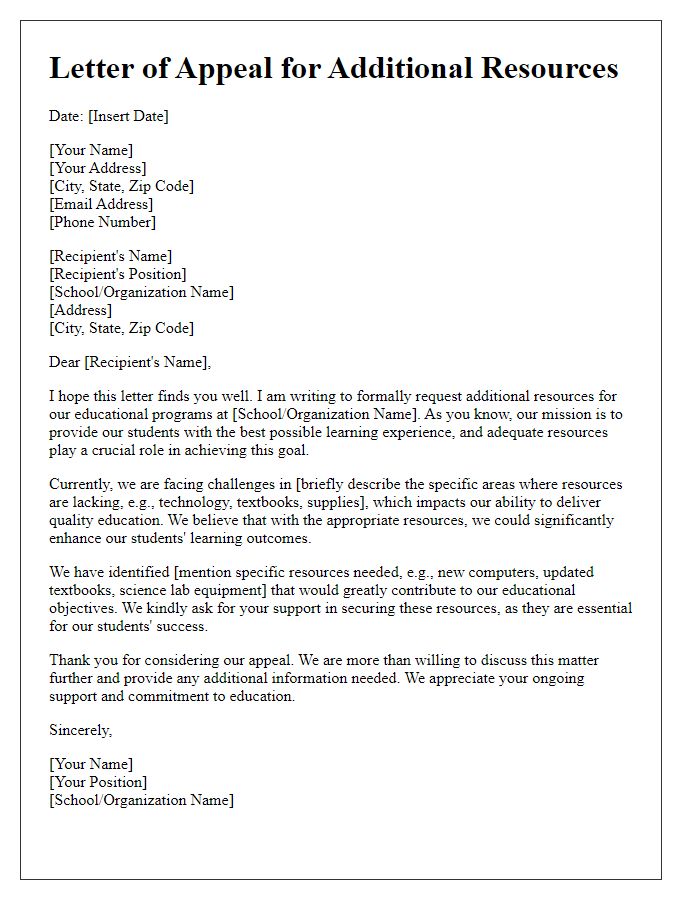
Letter template of dissatisfaction regarding the accuracy of educational materials.
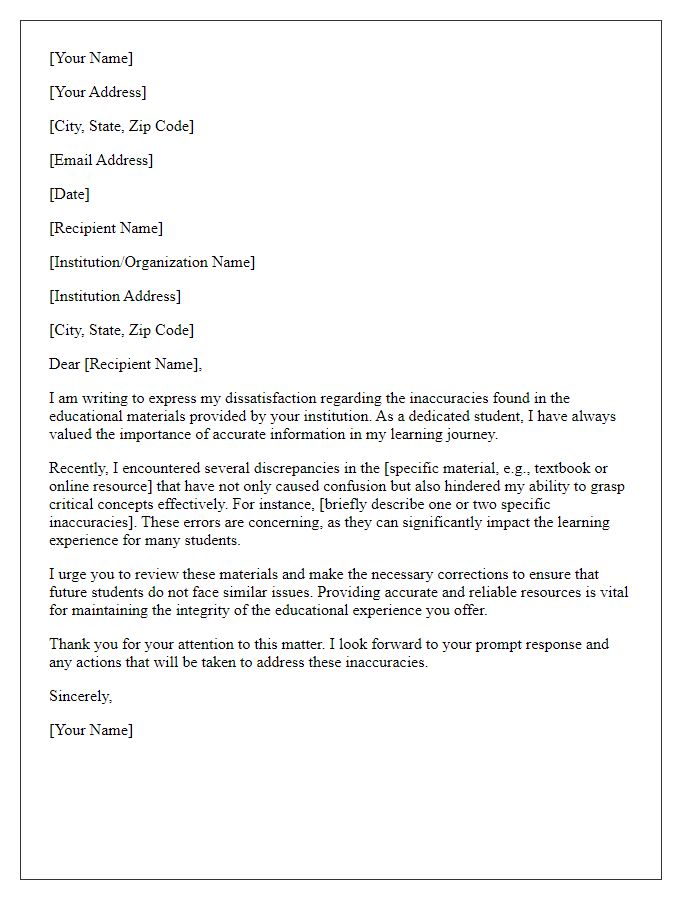
Letter template of inquiry about the customization options for educational materials.
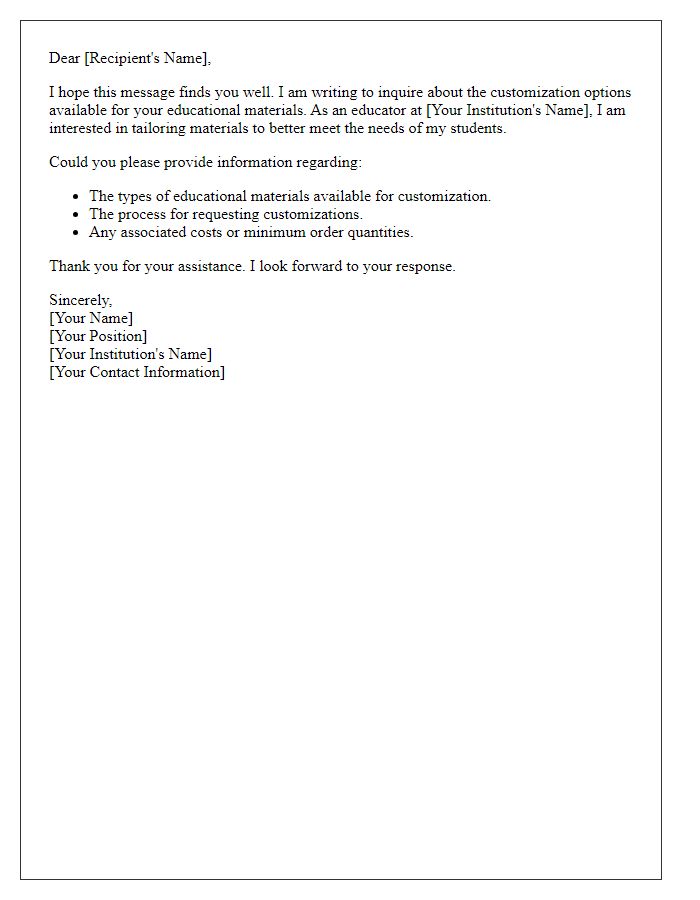
Letter template of notification about discrepancies in educational content.
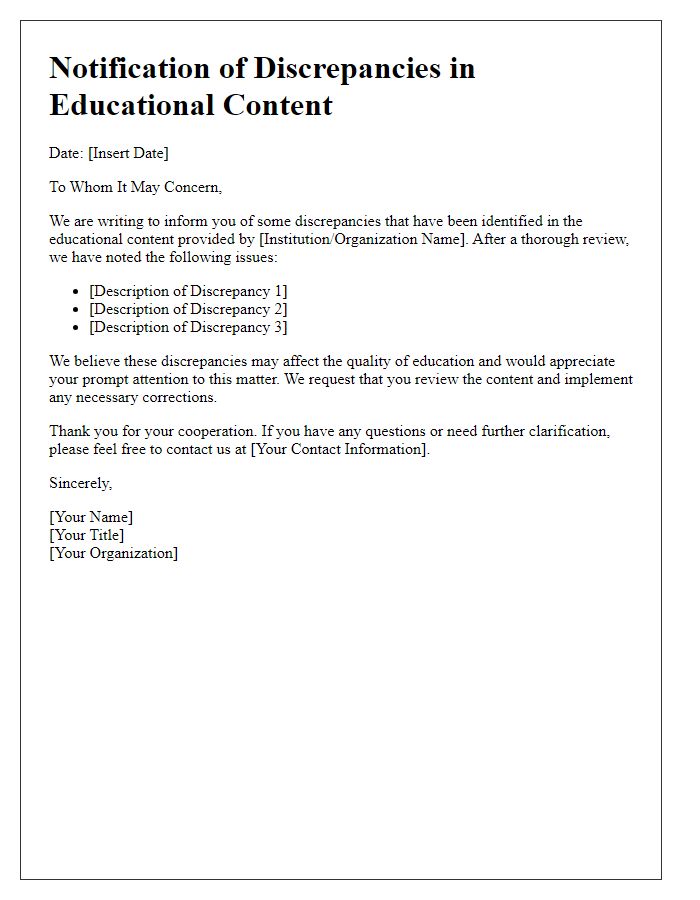

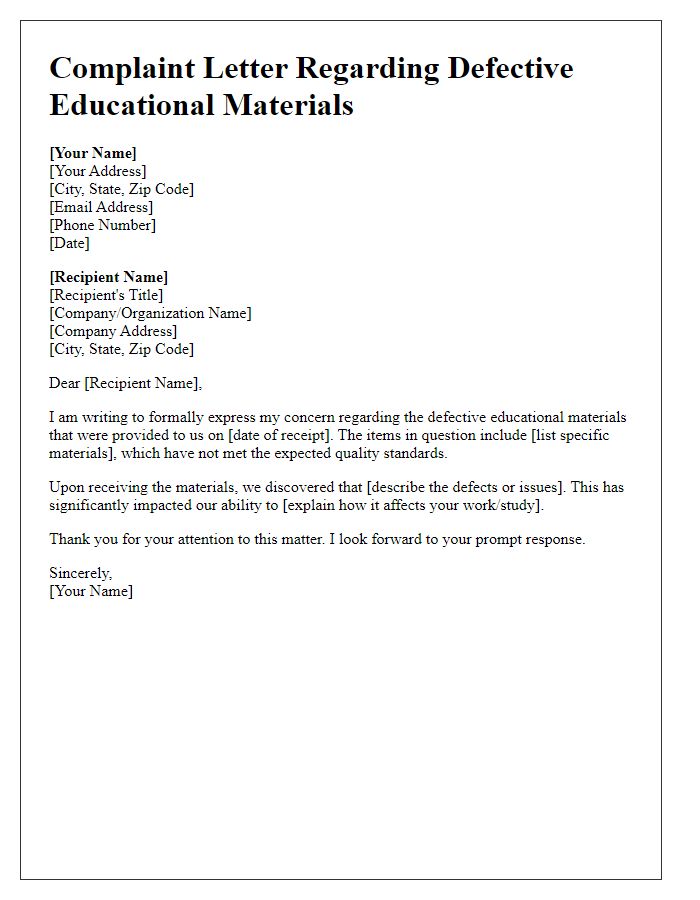
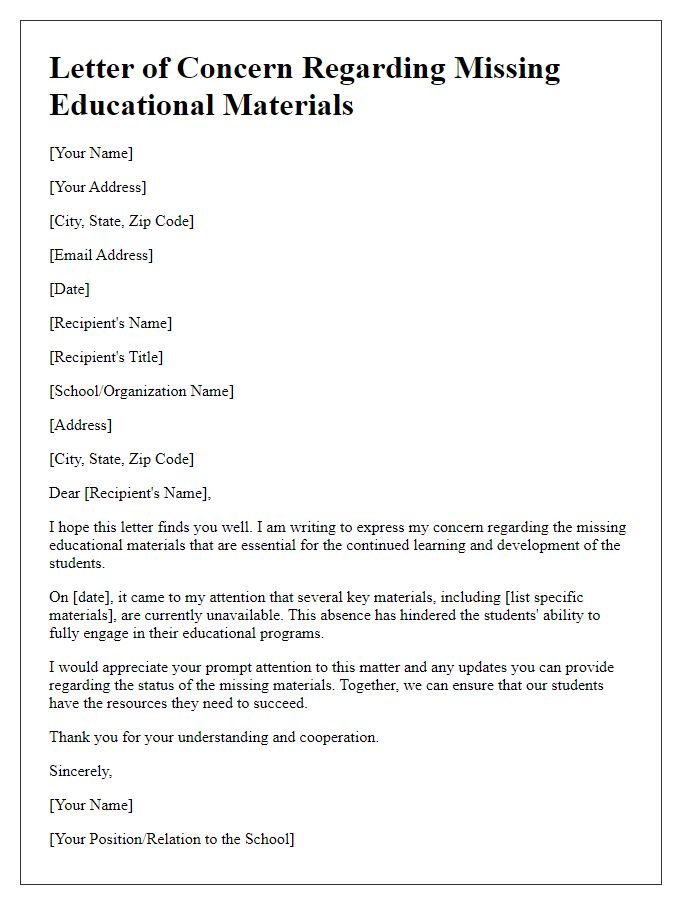
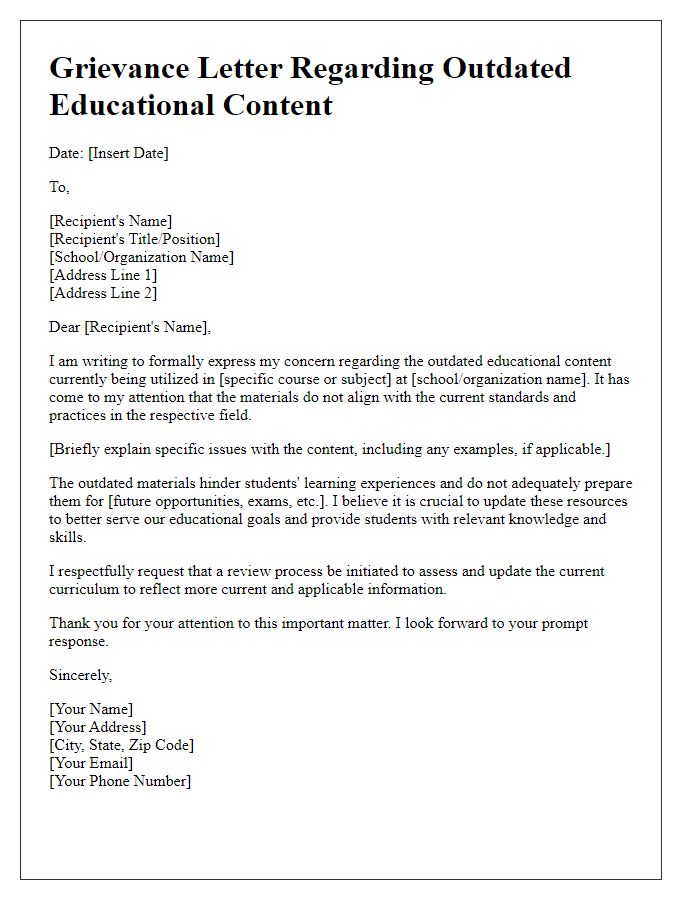
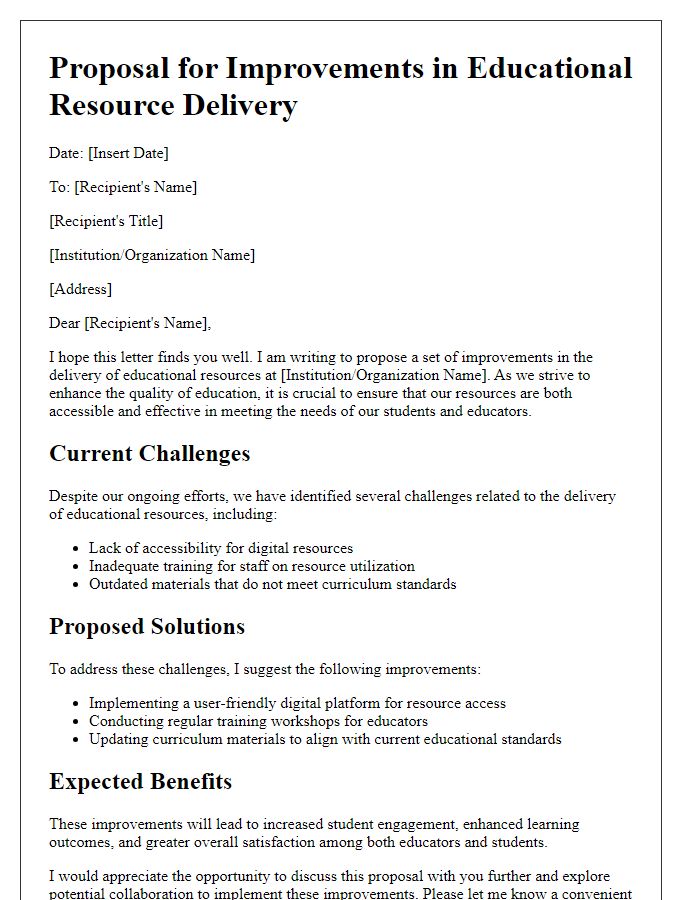

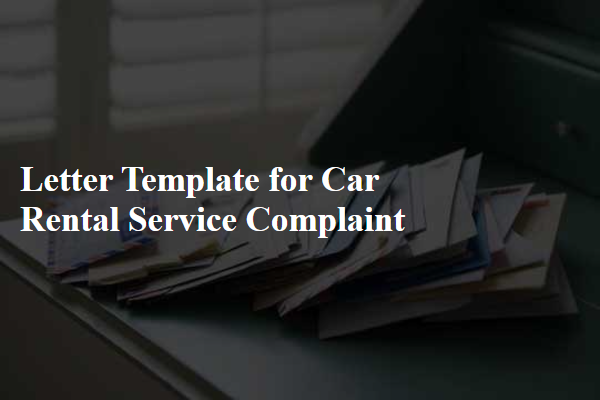
Comments